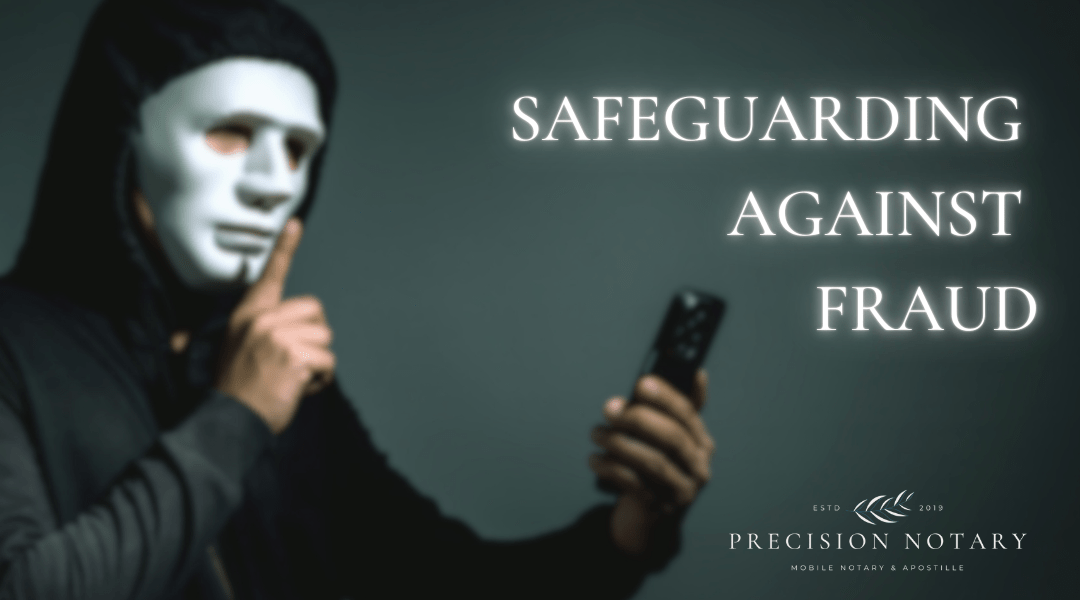Fraud can be a life-altering experience, impacting everything from your finances to your sense of security. Whether it involves your identity, bank accounts, or property, falling victim to fraud often means untangling a complicated web of damage. Fortunately, notaries play a pivotal role in safeguarding against fraud, offering an essential layer of protection during important transactions.
Notaries serve as impartial witnesses to the signing of critical documents. This role may seem straightforward, but their responsibilities are rooted in preventing fraud and ensuring the integrity of agreements.
Here are three key ways notaries help protect against fraud:
Verifying Identity
A cornerstone of a notary’s duties is confirming the identity of all signers. Before notarizing a document, a notary requires valid, government-issued identification to verify that the signer is who they claim to be. This step is vital in preventing imposters from fraudulently signing on behalf of someone else. By meticulously examining IDs and ensuring their legitimacy, notaries create a crucial checkpoint in any transaction.
Assessing Willingness
Fraud often involves coercion, where individuals are pressured or threatened into signing agreements they would not willingly enter. Notaries are trained to assess whether signers are acting voluntarily and without undue influence. If a notary detects signs of duress, such as hesitation, nervous behavior, or the presence of a third party exerting pressure, they can halt the process and refuse to notarize the document. This safeguard ensures that agreements reflect the true intent of all parties involved.
Preventing Forgery
Forged documents can have devastating consequences, from the unauthorized transfer of property to financial theft. Notaries deter forgery by witnessing signatures and maintaining a detailed record of the notarization process. This not only discourages would-be fraudsters but also provides a reliable trail of accountability if questions arise later. The act of signing in the presence of a notary ensures that the document is genuine and that the signature belongs to the correct individual.
A Real-Life Illustration
To understand the real-world impact of notaries in preventing fraud, consider this example: A fraudster attempts to access someone’s bank account using a forged power of attorney. Without a notary’s oversight, the fraud might go undetected until it’s too late. However, a diligent notary would carefully review the signer’s identification, comparing it against the information provided. If discrepancies or unusual behavior raised red flags, the notary would refuse to proceed. In doing so, they could prevent the fraudulent transaction and protect the rightful account holder from significant financial loss.
Far from being just a formality, a notary’s role is critical in maintaining trust and security in legal and financial transactions. Our work protects individuals, businesses, and institutions alike, acting as a frontline defense against fraud. Whether it’s verifying identity, ensuring willingness, or preventing forgery, notaries provide an invaluable service that helps safeguard the integrity of our most important agreements.



Recent Comments